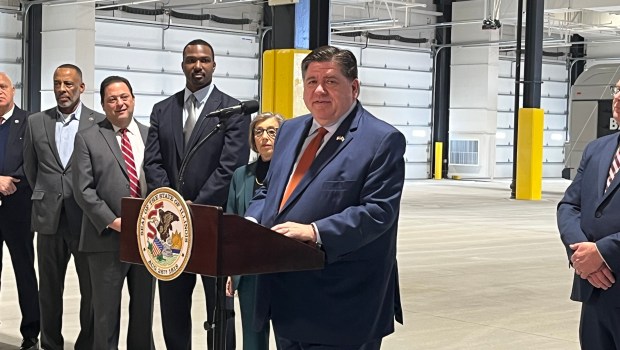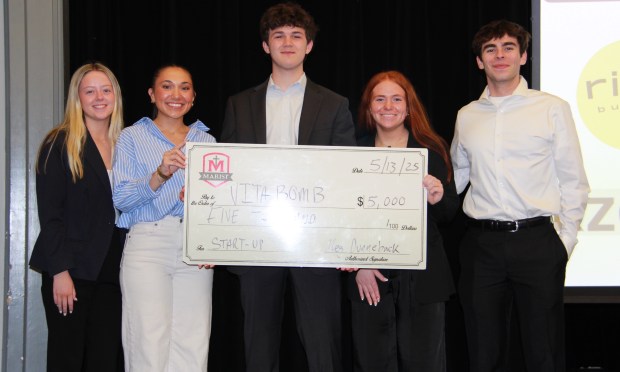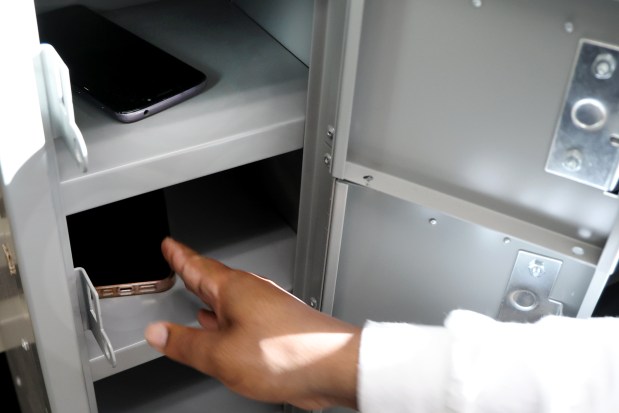Amid President Donald Trump’s efforts to slash the Green New Deal and federal funding for electric vehicle projects, Chicago-area public transportation agency Pace has announced a $36 million grant agreement with the state to support its commitment to transitioning to fully zero-emission buses by 2040.
Under the agreement, the Illinois Environmental Protection Agency will contribute $27 million in funds and Pace will contribute the local share of $9 million to fund 27 new zero-emissions buses, Pace officials said Friday at the Pace Acceptance Facility in Markham. Each bus costs $1.3 million, Pace officials said.
“I want affordable, accessible transit to be an option for all, and to do so, we need to invest at every level in the system, and we need to accommodate growth without sacrificing sustainability or efficiency,” Gov. JB Pritzker said. “Electric buses are vital to the future of transit.”
The $27 million comes from the state’s allocation from a multibillion-dollar national settlement with Volkswagen over the German automaker’s emissions, including allegations the company sold 60,000 vehicles with software designed to cheat air-quality tests, according to the governor’s office.
“It’s refreshing to see how something that began as a challenge for Volkswagen has been turned into something positive,” Pace Executive Director Melinda Metzger said.
Pace unveiled its commitment to transitioning to a fully zero-emissions fleet by 2040 through its Project Zero initiative, which started in 2022 with the delivery of Pace’s first electric bus, the agency said.
Pace’s first electric fixed route bus went into service in January 2024 operating in the Southwest Division on Route 381 along 95th Street, which serves the southwest suburbs and Chicago’s South Side. Pace executives said the second electric bus arrived in December 2024 and will be deployed soon. The agency also ordered an additional 22 electric fixed route buses expected to be delivered in 2025.
Pace started moving toward cleaner vehicles in 2012 by introducing hybrid electric buses in Highland Park.
Pace then began using compressed natural gas buses, which run on a cleaner-burning alternative to diesel, but still aren’t as clean as electric buses. In 2016, the agency upgraded its South Division garage in Markham to support buses using compressed natural gas.
Pace shifted course in 2021 to target all electric buses by 2040.
The effort, however, comes with a hefty price tag. Metzger said the agency operates a fleet of about 800 buses, and significant funding is required to transition to an all-electric fleet and upgrade Pace’s bus garages.
Meeting the goals of Project Zero could cost an estimated $2.5 billion — $1 billion for the vehicles and $1.5 billion to upgrade the agency’s 10 bus garages, according to Pace executives.
Pace’s North Division in Waukegan is scheduled to become a zero-emission-only facility in 2027, with the groundbreaking on the project taking place in spring 2025, according to Pace.
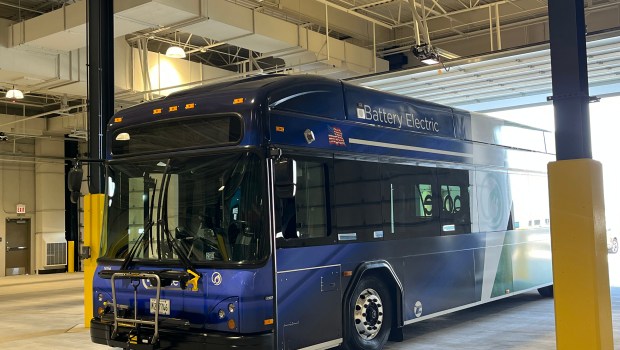
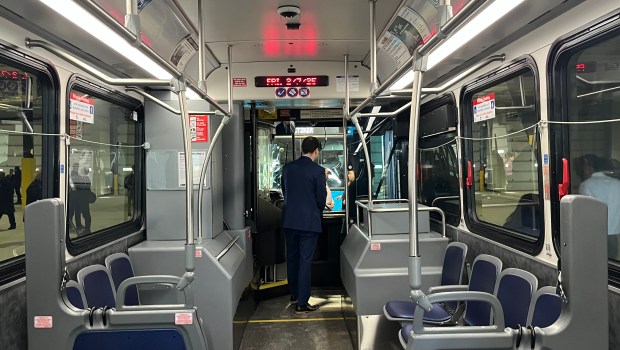
With federal funding for environmental protections expected to be cut as Trump pushes a second-term agenda aimed at scaling back Biden’s climate policies, Illinois EPA Acting Director James Jennings said he will continue to prioritize efforts to slow climate change.
“It’s no secret that diesel emissions from soot emitting vehicles have a really problematic effect to the health of our citizens. It contributes to climate change. It contributes to long standing health impacts, including certain types of cancers,” Jennings said at the Markham facility Friday.
As the state braces for potential changes, Metzger said Pace officials are waiting to see what actions Trump takes.
“We would like to see our federal money keep flowing, so right now we’re watching it,” Metzger said. “So far, our funding has continued to go through. We’ll have to see what the new president does, we don’t know.”
In a wide-ranging executive order signed on his first day in office, Trump put an immediate pause to billions of dollars in funding allocated for EV charging stations appropriated through the climate law, known as the Inflation Reduction Act, and the bipartisan infrastructure law approved in 2021.
Trump’s order said he would “eliminate the electric vehicle mandate” and promote true consumer choice.
The Federal Highway Administration released a memo Thursday directing states to halt the National Electric Vehicle Infrastructure program, a $5 billion provision under the Bipartisan Infrastructure Law signed by then-President Joe Biden in 2021 to build electric vehicle chargers along major highways.
“We’re hoping that we’re going to continue down this road, but we’re waiting to see,” Metzger said. “Riding a bus is inherently better for the environment because you get 50 people on a bus, that’s 50 cars off the road. So either way, we’re ready to help the environment.”
smoilanen@chicagotribune.com


